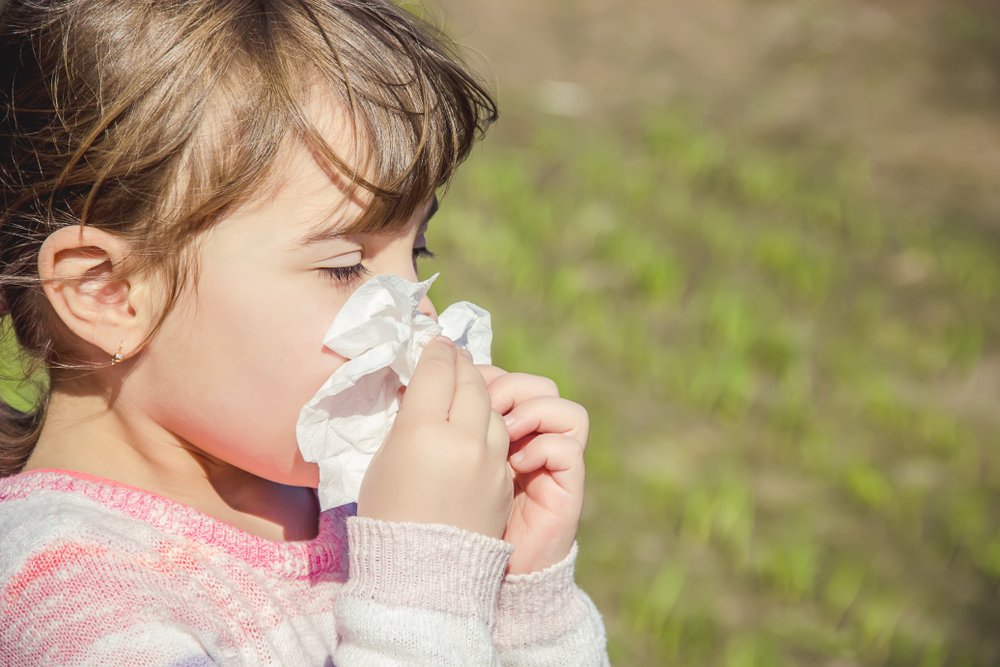Watching your child struggle with seasonal allergies can be heart-wrenching, especially when you are also dealing with them. Seasonal allergies, often referred to as hay fever or allergic rhinitis, can make the most beautiful times of the year feel like a challenge. Here’s how you can help your child manage and alleviate the symptoms.
Understanding seasonal allergies
Seasonal allergies, or allergic rhinitis, occur when your child’s immune system overreacts to allergens such as pollen from trees, flowers, and weeds. Common symptoms include sneezing, itchy nose and throat, nasal congestion, post-nasal drip, runny nose, and itchy, watery eyes.
The impact of allergies on children
Allergy season can severely affect your child’s daily life. Beyond the discomfort of symptoms, allergies can impact their ability to concentrate in school, leading to decreased academic performance. They are also more susceptible to ear and sinus infections and may experience worsened asthma symptoms. Lack of quality sleep due to nighttime symptoms can result in fatigue and irritability, which might cause behavioral issues.
Seeking relief: over-the-counter and prescription medications
Consult with your child’s healthcare provider to find suitable over-the-counter medications designed for children. Always read labels carefully and follow dosage instructions. In some cases, your healthcare provider might recommend prescription medications for more severe symptoms. Early intervention can prevent symptoms from worsening and improve your child’s overall quality of life.
Practical steps to minimize allergen exposure
Reducing your child’s exposure to allergens can significantly ease their symptoms. Here are some practical tips:
- Showering and Changing Clothes: Encourage your child to shower and change clothes immediately after coming inside. This helps remove pollen from their skin and hair. Additionally, having them shower before bed can provide relief and help them sleep better.
- Regular Face and Hand Washing: Make it a routine for your child to wash their face and hands frequently to remove pollen and other allergens.
- Keep Windows Closed: Keeping windows in your home and car closed can prevent pollen from entering your living spaces.
Stay Hydrated: Ensure your child drinks plenty of fluids. Staying hydrated can help thin mucus and ease some allergy symptoms. - Cold Compresses for Itchy Eyes: Applying a cold compress to your child’s eyes can soothe itchiness and reduce the urge to rub their eyes, which can exacerbate symptoms.
- Warm Compresses for Sinus Relief: If your child is experiencing sinus congestion, a warm compress can help alleviate discomfort.
- Nasal Care: If your child’s nose becomes sore from frequent blowing, applying a bit of petroleum jelly can provide relief. Use tissues with lotion or aloe to reduce irritation.
Indoor activities and creative solutions
On days when pollen counts are particularly high, consider engaging your child in indoor activities. This can help reduce exposure to allergens while keeping them entertained and active. Simple indoor games, crafts, or movie marathons can make staying indoors more enjoyable.
When to seek professional help
If your child’s symptoms persist despite these measures, it’s important to consult with an Ear, Nose, and Throat specialist. Persistent or severe symptoms may require more advanced treatment options.
For personalized advice and treatment options, find an Ear, Nose, and Throat specialist near you. They will work with you to ensure your child can enjoy the beauty of each season without the burden of allergies.



